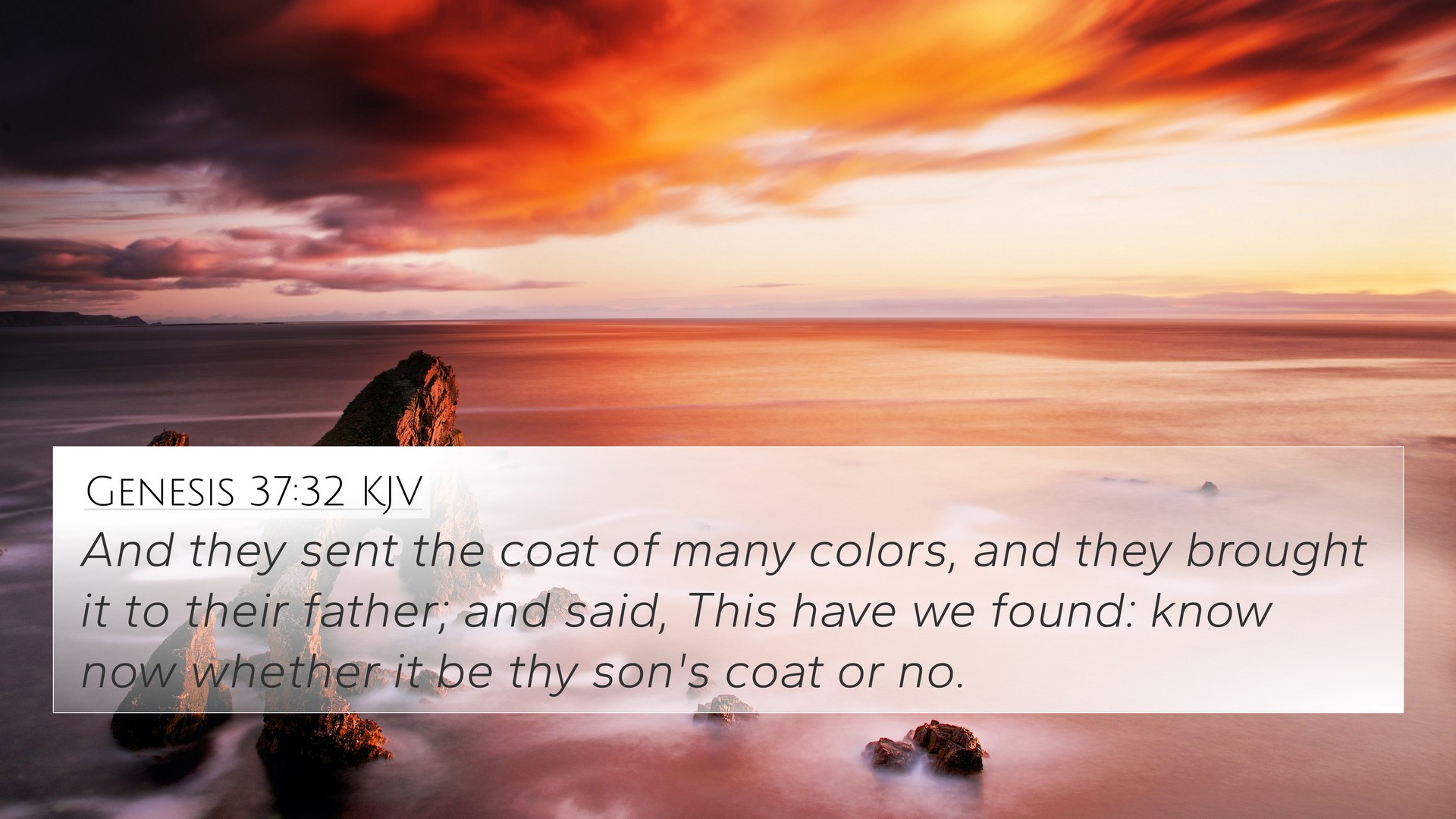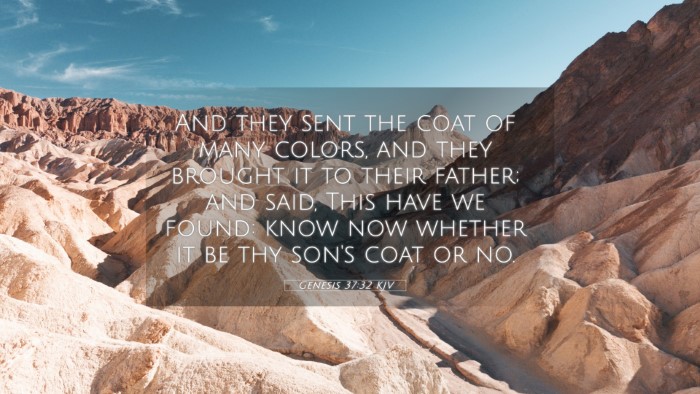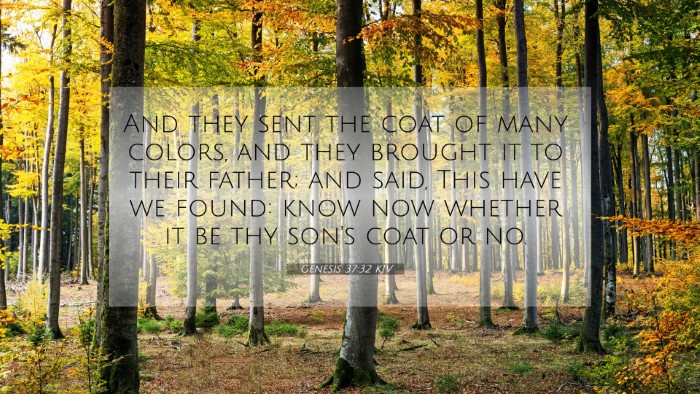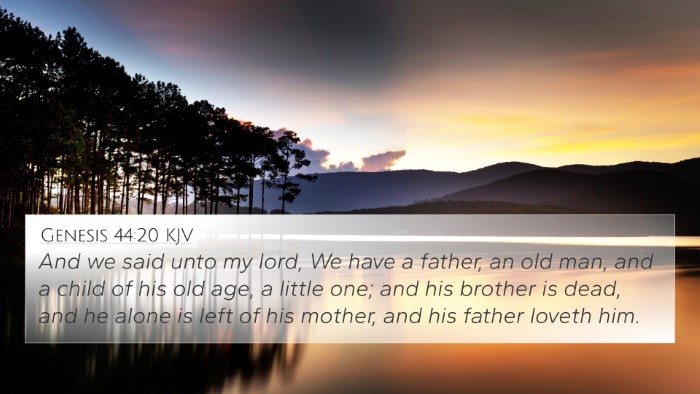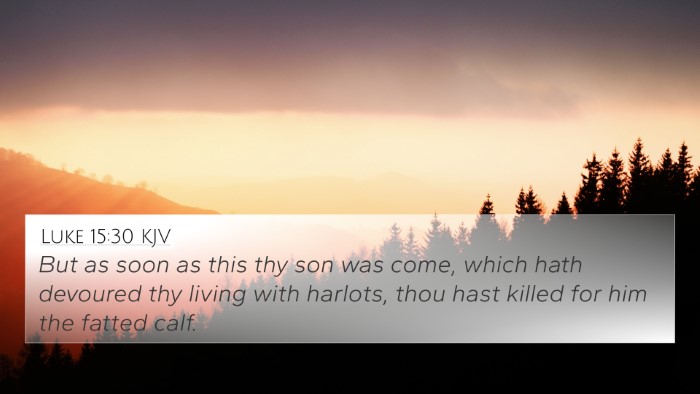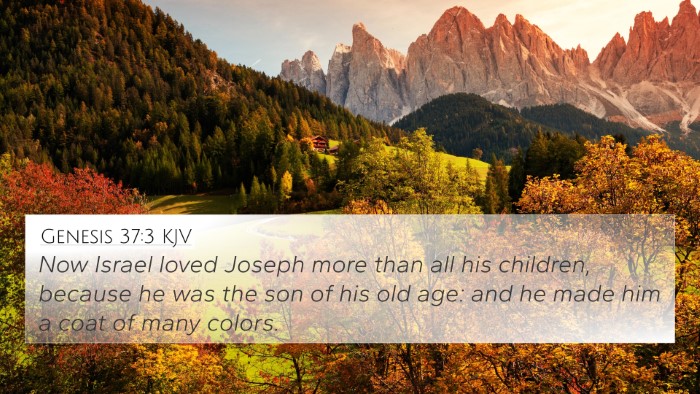Understanding Genesis 37:32
Genesis 37:32 states: "And they sent the coat of many colors, and they brought it to their father; and said, This have we found: know now whether it be thy son’s coat or not."
This verse is integral to understanding the narrative of Joseph and his brothers. It highlights an act of deceit where his brothers attempt to conceal their wrongdoing by bringing a bloodied coat to Jacob, leading him to believe that Joseph has been killed by a wild animal.
Key Themes and Insights
-
Deceit and Betrayal: The actions of Joseph's brothers reflect human tendencies toward deceit. This theme resonates throughout the Bible, as it showcases the complexity of familial relationships intertwined with dishonesty.
-
Symbolism of the Coat: The "coat of many colors" represents Joseph's special status in his father’s eyes, serving as a tangible symbol of favoritism and the ensuing jealousy that leads to betrayal.
-
Parental Grief: Jacob's response to the news of what he believes to be his son’s death showcases deep emotional turmoil. This highlights the impact of family dynamics and favoritism.
Cross-References from Genesis 37:32
- Genesis 37:3: "Now Israel loved Joseph more than all his children." This verse sets the stage for the jealousy and strife among Joseph and his siblings.
- Genesis 37:23-24: The actual act of throwing Joseph into a pit reveals their cruelty and foreshadows their deception.
- Genesis 39:1: Joseph’s journey into Egypt following his brothers' betrayal indicates the beginning of God’s greater plan for him.
- Genesis 45:7-8: Joseph later reveals how his brothers' actions were part of God's divine plan for reconciliation.
- Genesis 42:21-22: Joseph's brothers reflect on their guilt regarding their treatment of him, showing the long-term consequences of their deception.
- Job 13:16: Job speaks of innocence and integrity, contrasting with the deceptive actions of Joseph’s brothers.
- Matthew 10:36: "And a man’s foes shall be they of his own household," reflecting how family betrayal resonates in biblical narratives.
Comparative Bible Verse Analysis
An analysis of Genesis 37:32 alongside other passages emphasizes the theme of betrayal and the consequences of choices. The story of Jesus and Judas Iscariot in the New Testament serves as a parallel, where close relationships devolve into betrayal for personal gain (Luke 22:48).
Tools and Methods for Bible Cross-Referencing
To fully understand Genesis 37:32 and its implications, cross-referencing can be an invaluable tool. Various methods include:
-
Bible Concordance: A resource that lists words and phrases along with their corresponding verses.
-
Bible Cross-Reference Guide: Books or online tools that present related verses on specific themes.
-
Cross-Referencing Bible Study Methods: An approach that involves matching themes and narratives across Scripture.
Inter-Biblical Dialogue
Through inter-Biblical dialogue, connections between the Old and New Testaments become evident. The betrayal experienced by Joseph mirrors the betrayal of Jesus by Judas, showing a recurring motif of betrayal within God's narrative.
Thematic Bible Verse Connections
Understanding Genesis 37:32 invites a deeper exploration of themes such as forgiveness, redemption, and the complexities of human relationships, all of which are central to biblical teachings.
Conclusion
The narrative surrounding Genesis 37:32 serves as a poignant reminder of the human capacity for both love and betrayal. By examining this verse within the larger biblical context and through cross-references, we unravel deeper meanings integral to the spiritual journey.
